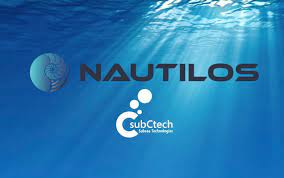Project Management Team
Type of resources
Topics
Keywords
Contact for the resource
Provided by
Years
Representation types
-

NAUTILOS, a Horizon 2020 Innovation Action project funded under EU’s the Future of Seas and Oceans Flagship Initiative, aims to fill in marine observation and modelling gaps for biogeochemical, biological and deep ocean physics essential ocean variables and micro-/nano-plastics, by developing a new generation of cost-effective sensors and samplers, their integration within observing platforms and deployment in large-scale demonstrations in European seas. The principles underlying NAUTILOS are those of the development, integration, validation and demonstration of new cutting-edge technologies with regards to sensors, interoperability and embedding skills. The development is always guided by the objectives of scalability, modularity, cost-effectiveness, and open-source availability of software products produced. Bringing together 21 entities from 11 European countries with multidisciplinary expertise, NAUTILOS has the fundamental aim to complement and expand current European observation tools and services, to obtain a collection of data at a much higher spatial resolution, temporal regularity and length than currently available at the European scale, and to further enable and democratize the monitoring of the marine environment to both traditional and non-traditional data users.
-

The technologies developed will expand our knowledge of the ocean’s interconnected systems and provide tangible benefits to the industries that rely on them, such as fisheries and aquaculture. The data generated will also support conservation initiatives and provide vital information to policy makers. The future impact of these valuable technologies relies on their accessibility. Therefore, TechOceanS technology pilots will be low-cost and place minimal demands on existing infrastructure, allowing them to be made available for use by all countries regardless of resources. TechOceanS will also work with the IOC-UNESCO to develop “ocean best practices” standards for training and monitoring of metrology and ocean systems.
 Catalogue PIGMA
Catalogue PIGMA